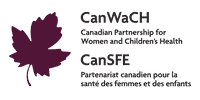Détails de l'évènement
English follows...
Rejoignez le Club Sexu pour un atelier interactif gratuit d'une heure et demie le 8 décembre à partir de 13h30 HNE.
À propos de l'atelier
La formation sur l'écriture inclusive constitue un complément au guide signé et édité par Les 3 sex* et Club Sexu.
Écriture épicène, langage non sexiste, communication non genrée : cette formation tente de démystifier ce qu'est l'écriture inclusive ainsi que les mythes qui l'entourent. Reprenant la terminologie construite pour la politique éditoriale des deux organismes, nous divisons la pratique de l'écriture inclusive en trois types, qu'il est possible d'appliquer en fonction du texte et du lectorat cible.
Objectifs d'apprentissage
Joignez-vous à nous pour explorer ce qu'est l'écriture inclusive et ses trois types, les différentes techniques appuyées d'exemples concrets, quel type prioriser selon le contexte et le lectorat, comment rendre un texte inclusif ainsi que quelques mythes sur l'écriture inclusive. Un guide abrégé sera remis à chaque participant.e résumant les points importants de la formation.
Malheureusement, le nombre de places pour cet atelier est limité. Nous apprécions tous ceux qui souhaitent y participer et nous demandons que trois personnes au maximum s'inscrivent par organisation. Veuillez vous assurer de pouvoir assister à la totalité de la session d'une heure et demie, car les places seront réservées en priorité aux personnes qui pourront participer à l'ensemble de l'atelier.
Cette session sera offerte en français seulement.
Si vous avez des questions, veuillez contacter EFN-RAE@CanWaCH.ca.
--------------
Join Club Sexu for a free 1.5 hour interactive workshop on December 8 starting at 1:30 pm EST.
About this Workshop
The inclusive writing training is a complement to the guidebook signed and published by Les 3 sex* and Club Sexu.
Epicene writing, non-sexist language, non-gendered communication: this training attempts to demystify what inclusive writing is and the myths that surround it. Using the terminology developed for the editorial policy of the two organizations, we divide the practice of inclusive writing into three types, which can be applied depending on the text and the target readership.
Learning Objectives
Join us as we explore what inclusive writing is and its three types, the different techniques supported by concrete examples, which type to prioritize depending on the context and readership, how to make a text inclusive, and some myths about inclusive writing. A short guide will be given to each participant summarizing the important points of the training.
Unfortunately, space for this workshop is limited. We appreciate all those who wish to attend and ask that a maximum of three people per organization register. Please ensure that you are able to attend the entire 1.5 hour session, as priority seating will be given to those who are able to attend the entire workshop.
This session will be offered in French only.
If you have any questions, please contact EFN-RAE@CanWaCH.ca .

